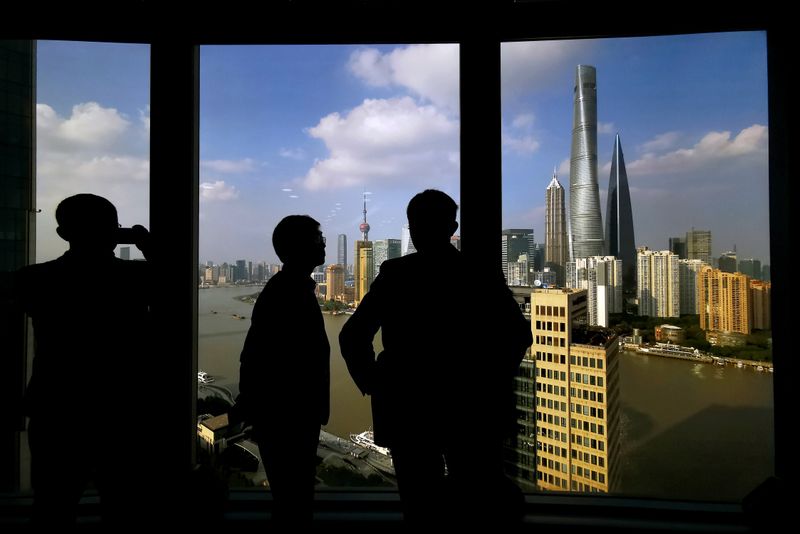By Tom Westbrook
SYDNEY (Reuters) - Confidence among Asian businesses rebounded sharply this quarter to hit an 18-month high with firms reporting a pickup in sales, though most are holding off on hiring as trade war uncertainty weighs, a Thomson Reuters/INSEAD survey found.
The Thomson Reuters/INSEAD Asian Business Sentiment Index tracking firms' six-month outlook jumped 13 points to 71 for the fourth quarter. That lifted confidence from close to a decade low in the previous quarter to its highest since June last year.
The swing is also the strongest turnaround since the tail end of the eurozone debt crisis in 2011, when China was pouring stimulus into its economy as well. [ASIATOPCO/]
A reading above 50 means optimistic respondents outnumbered pessimists.
This quarter revealed a noticeable shift from neutral to optimistic, and showed the strongest reading on sales growth in a year. Yet the majority of firms are not yet confident enough to plan hiring.
"Conditions, expectations and some of the uncertainty has improved over the last quarter," said Antonio Fatas, economics professor at global business school INSEAD in Singapore, pointing to easing tensions between China and the United States.
"But I don't see this uncertainty disappearing, I think some of these tensions are going to stay with us maybe for years or decades."
Respondents rated their chief risk as the Sino-U.S. trade war, which has been a regular feature in the survey for much of the past two years as the conflict has weighed on global growth.
A total of 102 companies responded to the survey, conducted in 11 Asia-Pacific countries where 45% of the world's population lives and almost a third of global gross domestic product is generated.
Participants included firms in industries as varied as automaking, tourism and energy, such as Japan's Suzuki Motor Corp, Thai hotelier Minor International PCL and Australia's Oil Search Ltd.
For a graphic on Business sentiment index, click https://fingfx.thomsonreuters.com/gfx/editorcharts/ASIA-BUSINESSSENTIMENT/0H001QXN59RG/eikon.png
READY TO REAP
The survey was conducted from Nov. 29 to Dec. 13, as Chinese and U.S. negotiators finalised a "phase-one" deal to reduce some tariff barriers.
The most recent International Monetary Fund global growth projections forecast the trade war will drag the world's economy to its slowest pace of expansion since the 2008-9 financial crisis.
"Although the external environment remains challenging, Minor is confident that we will be able to withstand such challenges," said Chaiyapat Paitoon, deputy corporate chief financial officer at Minor International.
The firm has sought to diversify, increasing its stake to control nearly all of Spain's NH Hotels Group last year, and has grown its food segment with the November purchase of a Korean fried chicken franchise in Thailand.
"We are putting in extra effort to remain at the forefront of consumers' minds, so we are ready to reap the benefit when the environment becomes more conducive," Paitoon said.
Elsewhere, there are already green shoots. After months of weakness, growth in China's industrial and retail sectors beat expectations in November, as government support propped up demand.
The chipmakers benchmark, the Philadelphia SE Semiconductor Index - seen as a bellwether of the global economy since demand for chips is a reliable proxy for growth and consumption - hit an all-time high this week.
However the headline numbers remain subdued as protectionism bites, with China's economic growth, for example, at its slowest in about a generation.
"At least as far as next year is concerned, I think the caution is still pretty much warranted," said Howie Lee, economist at OCBC Bank in Singapore.
"We are not out of the woods yet ... but deeper into the decade I think the dynamics will change a little bit, assuming that this first wave of the trade war has fully blown over."

Note: Companies surveyed can change from quarter to quarter.